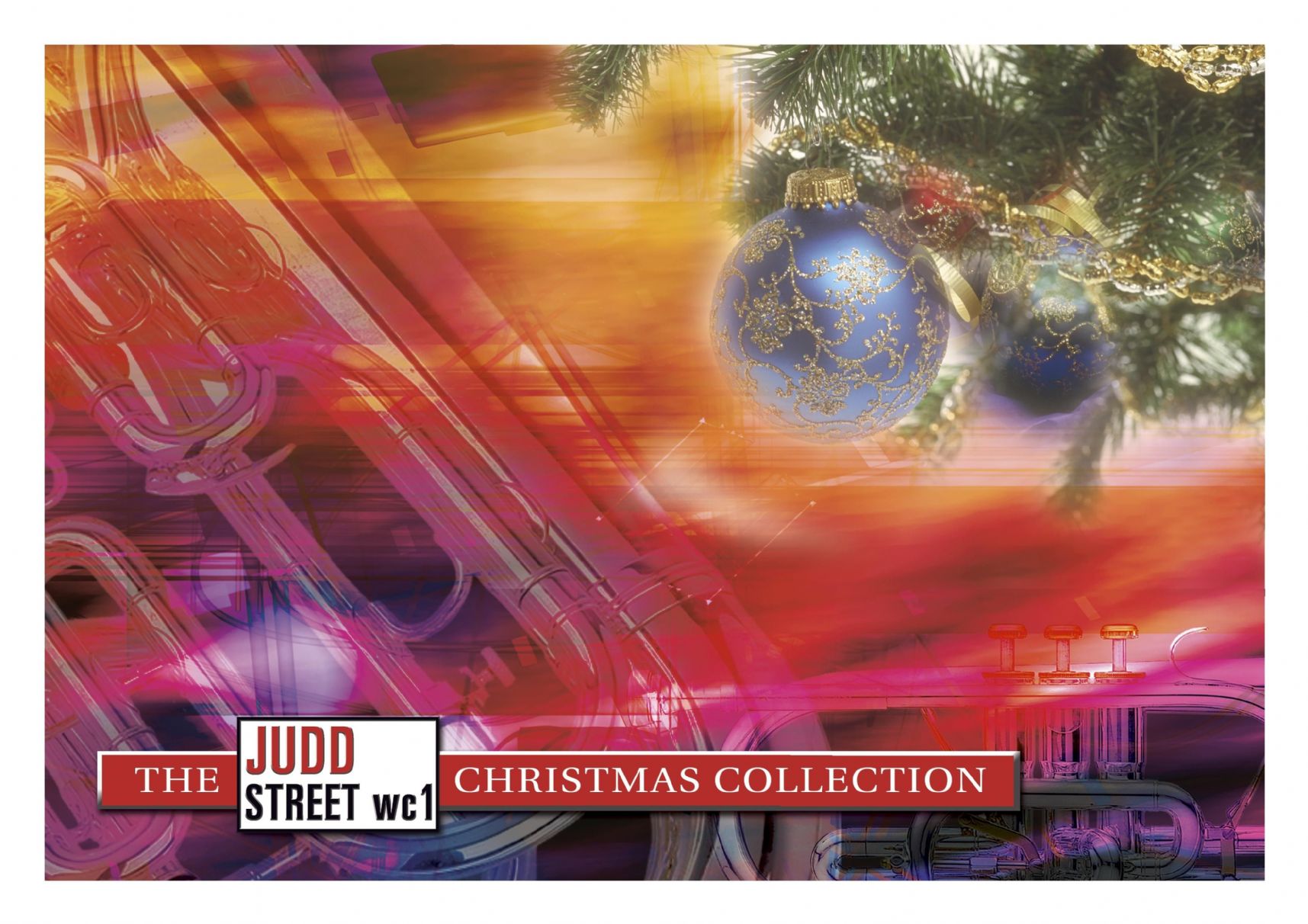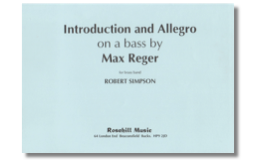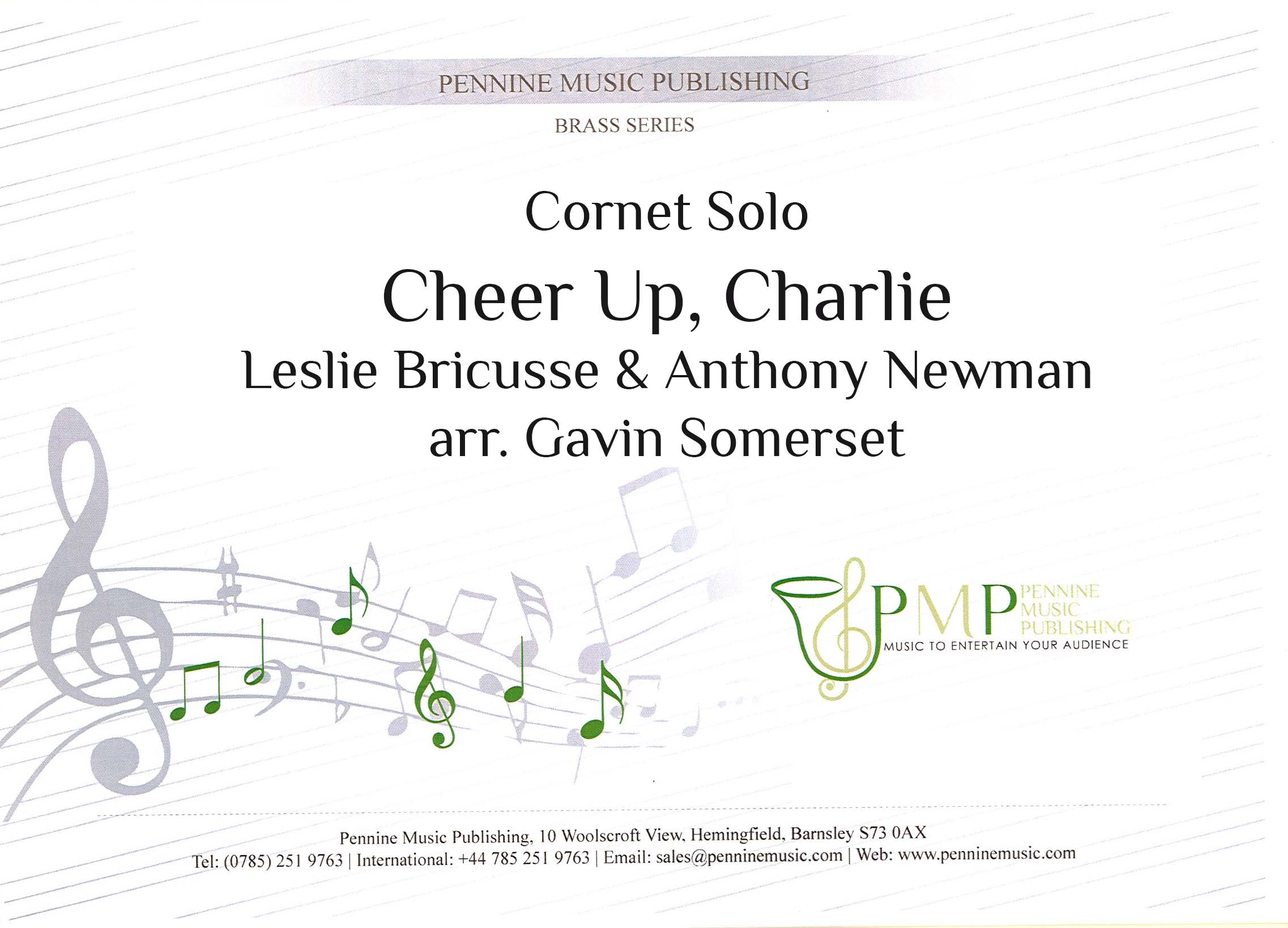Results
-
 £59.99
£59.99Adagietto (Brass Band - Score and Parts)
With Adagietto Jacob de Haan demonstrates his ability to write in all kinds of styles. A sense of pure calm emanates from the flowing main melody. The tasteful orchestration fully supports the harmonic suspense as the piece progresses towards a fantastic climax at the end. 02:00
Estimated dispatch 7-14 working days
-
 £40.00
£40.00Jurassic Park (Brass Band - Score and Parts) - Williams, John - Catherall, Alan
The two main themes from the film. The same music has been used in the sequel The Lost World.Parts of the score are quite difficult, but there is a cut to overcome many of the technical difficulties in the middle section. Six minutes of pure magic. This edition has remained a popular seller over the years.Suitable for 3rd Section bands and above
Estimated dispatch 7-14 working days
-
 £29.95
£29.95Judd: Comfort and Joy
A pure, unadulterated 'big band' style jazz arrangement for brass band of 'God rest ye merry gentlemen'.
Estimated dispatch 7-14 working days
-
 £75.00
£75.00As Above, So Below - Jay Capperauld
An original composition for brass band and brass quintet by Jay Capperauld was commissioned by John Wallace and The Wallace Collection with the support of the PRS Foundation's Beyond Borders. This major work enjoyed its world premiere at The Cumnock Tryst on 30 September 2017 at Cumnock Old Church, performed by The Wallace Collection and Dalmellington Band, conducted by Martyn Brabbins.If you would like to perform this work, please don't hesitate considering The Wallace Collection to provide the brass quintet elements - if you would like to discuss potential performances, please contact us on [email protected] NotesBased on the Hermetic maxim "As Above, So Below", the phrase comes from the cryptic text of The Emerald Tablet, which was purportedly written by a mysterious character who is thought of as an amalgamation of Greek and Egyptian Gods, Hermes Trismegistus. The text first appears in Arabic between the 6th and 8th Centuries and is intended to outline the primitive and hidden sources that constitute the basis of all matter in the universe. The phrase "As Above, So Below" implies an essential "oneness" of all matter and a correlation between the physical elements and supernatural entities that make up our surroundings. The philosophies expressed within The Emerald Tablet have become a founding principle of Alchemy, Occultism, Witchcraft, Theosophy and various other ancient gnostic systems of belief, and this work attempts to explore these forms of so-called "secret knowledge" in a ritualistic trance-like Adagio steeped in the esoteric.The Brass Band is placed at the centre of the stage while the solo Brass Quintet are spread antiphonally around the concert hall and are placed above both the Brass Band and the audience in an attempt to create a direct dialogue between the Above and the Below. Therefore, the piece endeavours to explore the meaning behind the text of The Emerald Tablet as well as the phrase 'As Above, So Below' in a music context while giving particular attention to the 'SOLVE' (Latin for 'Separate' which correlates to the Above) and 'COAGLUA' (Latin for 'Join Together' which relates to the Below) that is depicted in the image of the Baphomet by the French occultist author, Eliphas Levi, which is a visual representation of the phrase 'As Above, So Below'.Additional Note of InterestIt was not until the work was complete that the role of the main melody became clear when an unexpected and inadvertent correlation between this melody and that of the Latin Dies Irae presented itself. The plainchant nature of As Above, So Below's melody became a defining feature of the piece and when compared to the melody of the Dies Irae (a similar melody reminiscent of that contained within As Above, So Below), some interesting and unsettling implications unveiled themselves.The findings of a comparison can be interpreted as follows:Both melodies adhere naturally to the plainchant idiom, which in itself strongly relates to a supernatural (or quasi-religious) element in both cases.Both melodies originate in the key of D; the Dies Irae resides in the Dorian Mode on D while the As Above, So Below melody inhabits the D Octatonic Scale.Both melodies can be divided into three distinct phrases, although the melody to As Above, So Below can be divided into three phrases in a number of ambiguous ways.The most striking and unnerving connection is that, by pure chance, the Latin text to the Dies Irae fits perfectly under both melodies giving an entirely specific context to how the melodies are perceived.By understanding the As Above, So Below melody as an alternative to that of the Dies Irae and by interpreting it in the same context, the connotations of the Dies Irae's otherworldliness, and the suggestion of a dialogue with the supernatural and death adds a richer dimension to the As Above, So Below melody which in turn solidifies the esoteric concept of this work.In conclusion, this unanticipated and purely accidental relationship between both melodies is worthy of note more so from an emotional and contextual perspective rather than from any analytical evaluation concerning the music itself - it is the circumstance of the so-called "secret knowledge" that has presented itself within the inner workings of As Above, So Below.
In Stock: Estimated dispatch 3-5 working days
-
 £52.00
£52.00Introduction and Allegro on a bass by Max Reger (Score only) - Robert Simpson
The fourth work for brass band to come from Robert Simpson's pen has enriched the repertory still further. Introduction and Allegro on a Bass by Max Reger was composed between the end of June and the beginning of November 1986 at the request of Howard Snell and was commissioned by the Desford Colliery Dowty band. The Introduction is mainly mysterious and deliberate while the Allegro is full of energy. The Bass is question is taken from Reger's Fantasia and Fugue in D Minor, opus 135b, and at one point, near the end of the work, Reger's own treatment of the bass is used. The rest is pure Simpson. Duration: 16:00
Estimated dispatch 7-9 working days
-
 £62.00
£62.00Introduction and Allegro on a bass by Max Reger (Parts only) - Robert SImpson
The fourth work for brass band to come from Robert Simpson's pen has enriched the repertory still further. Introduction and Allegro on a Bass by Max Reger was composed between the end of June and the beginning of November 1986 at the request of Howard Snell and was commissioned by the Desford Colliery Dowty band. The Introduction is mainly mysterious and deliberate while the Allegro is full of energy. The Bass is question is taken from Reger's Fantasia and Fugue in D Minor, opus 135b, and at one point, near the end of the work, Reger's own treatment of the bass is used. The rest is pure Simpson. Duration: 16:00
Estimated dispatch 7-9 working days
-
 £104.99
£104.99Arkansas - Jacob de Haan
This concert work, the latest of Jacob de Haan works based on American states, is a suite in three movements, based on a well-known folk tune from Arkansas. In the course of this varied work the folk song appears in its complete form and in fragments, in major and in minor, as a ballad in a lyrical orchestration, as a blues, accompanied by a jazzy rhythm and at the end again in its pure form. In the process, all instrumental groups of the brass band get their chance to shine!
Estimated dispatch 5-14 working days
-
 £29.50
£29.50Cheer Up Charlie (Cornet Solo)
This fresh new cornet solo comes from one of the greatest loved movies of all time. Featuring alongside musical hits such as Pure Imagination and The Candy Man, Cheer Up, Charlie is probably one of the most underrated musical numbers from the film, Willy Wonka & The Chocolate Factory. In the film, the song is sung by Charlies mother, whilst young Charlie ponders the life he believes lay ahead for him. With a complex chord structure, the band parts remain interesting throughout whilst the lyrical solo line can shine in this beautiful, melodic work. A great slow melody solo item and one that works on both concert and contest stages.
Estimated dispatch 7-14 working days
-
 £34.95
£34.95Aristotle's Air - Christopher Bond
The Ancient Greeks believed that there were four elements that everything was made up of: earth, water, air and fire. This theory was suggested around 450 BC, and was later supported and added to by Aristotle. The idea that these four elements - earth, water, air and fire - made up all matter was the cornerstone of philosophy, science, and medicine for two thousand years. Air was considered a 'pure' element, but in fact the air that's all around us is made up of a variety of gasses. Of course, in music, air has a different meaning; a beautiful song-like melody or tune and Aristotle's Air is just that. The work was commissioned by and written for The Cory Band as part of their winning 2015 Brass in Concert programme 'The Four Elements of the Universe', being premiered at the contest at The Sage, Gateshead, on 15th November 2015. The work was awarded the Cyril Beere Memorial Trophy for the Best New Composition or Arrangement.
Estimated dispatch 5-10 working days
-
 £35.00
£35.00Money, Money (Makes The World Go Round)
This fun and quirky arrangement was premiered at the 2011 West Lothian Challenge by Kingdom Brass and helped to lead them to victory in the first round! A great show-piece for the band which lends itself to creativity on the drama and choreography front if desired.A definite highlight for a concert programme with opportunities to mix great music with pure entertainment.
In Stock: Estimated dispatch 3-5 working days
